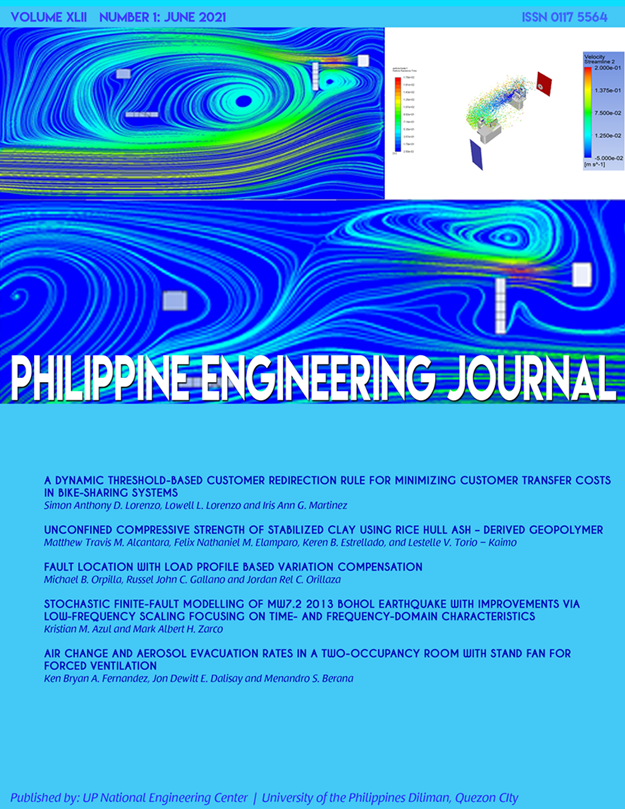Unconfined Compressive Strength of Stabilized Clay Using Rice Hull Ash – Derived Geopolymer
Abstract
Rice hull ash (RHA) is an industrial by-product that has pozzolanic properties and is rich in silica making it suitable as an aluminosilicate precursor for geopolymers. Geopolymers are the product of geopolymerization from the dissolution of aluminosilicate materials by an alkali activator. The effectiveness of geopolymers as admixture in concrete has been proven in several studies. This research determined the effects of RHA-based geopolymers on the unconfined compressive strength (UCS) and the corresponding stress-strain behavior of lean clay. Clay-only specimens were prepared as control. Samples with 5%, 10%, and 15% geopolymer content by weight were prepared and were cured for 7 and 28 days. In terms of UCS, the curing period did not have a significant effect regardless of the geopolymer content. The curing period also did not have significant effects on the stress-strain behavior of the geopolymerized samples. The addition of geopolymer in the soil sample increased the UCS of the soil. The higher the geopolymer content, the higher the UCS of the sample. There was a 547% increase in the UCS of the plain soil to the sample with 15% geopolymer content with a mean value of 418.5 kPa. Post-peak behavior of samples with higher geopolymer content exhibited pronounced strain softening.
Keywords — soil stabilization, geopolymerization, unconfined compressive strength


